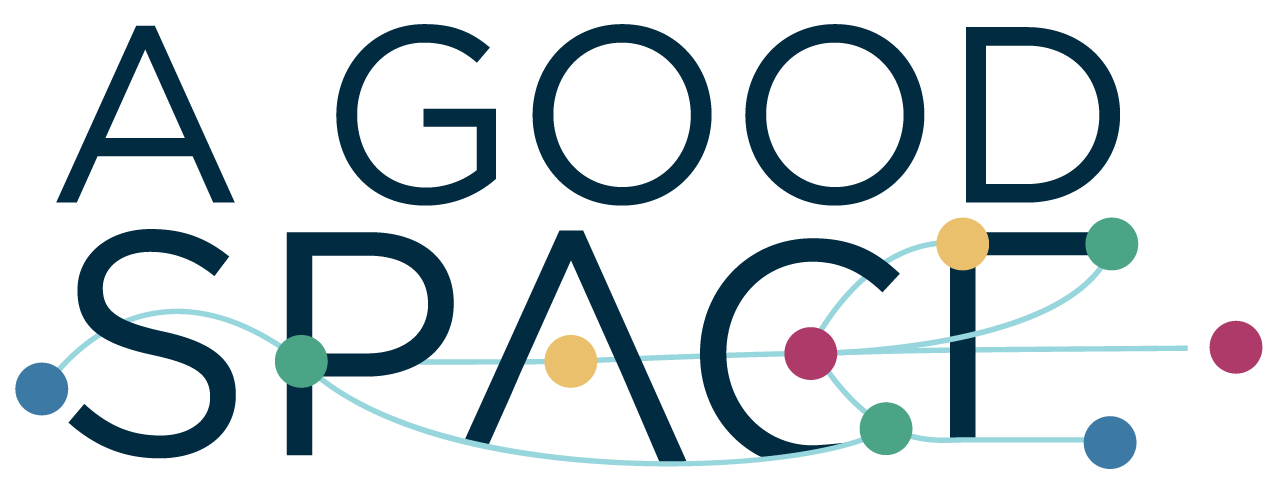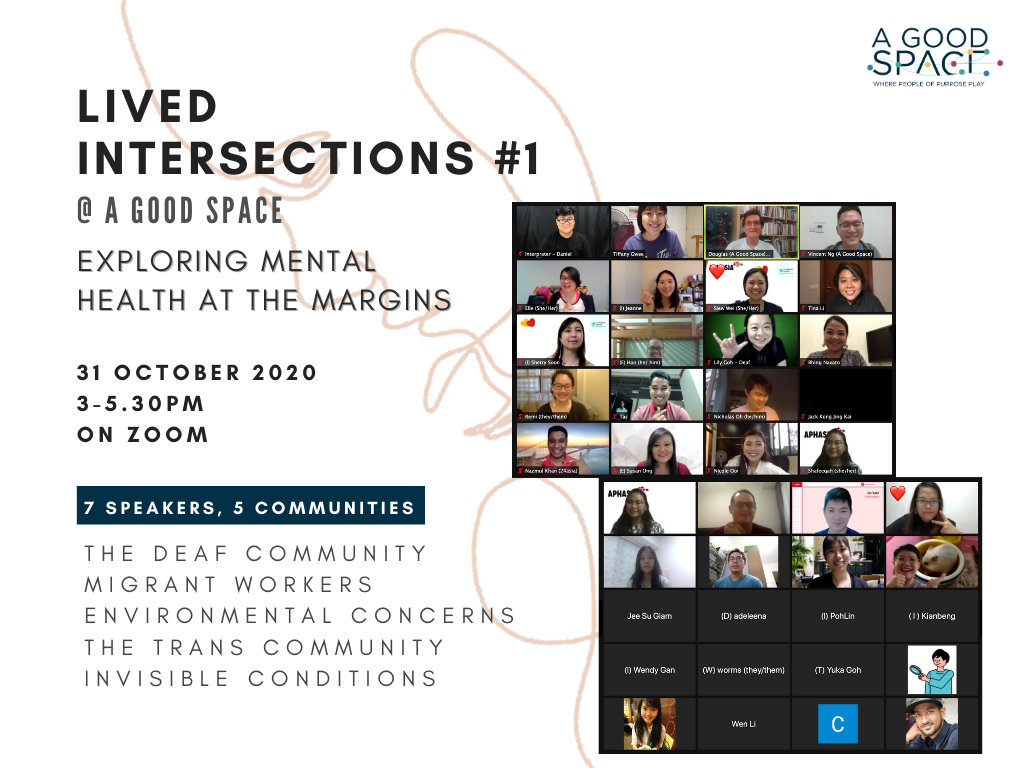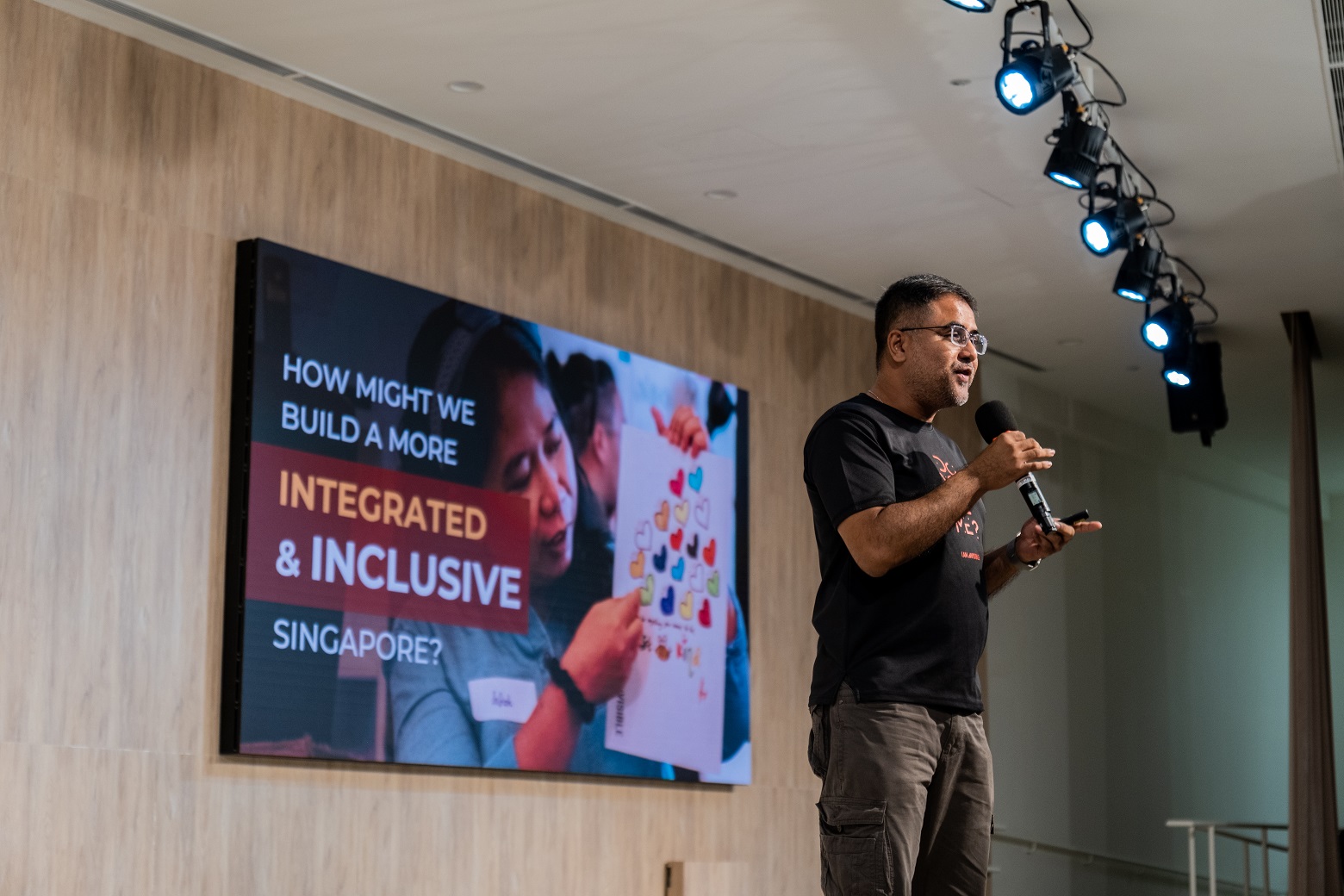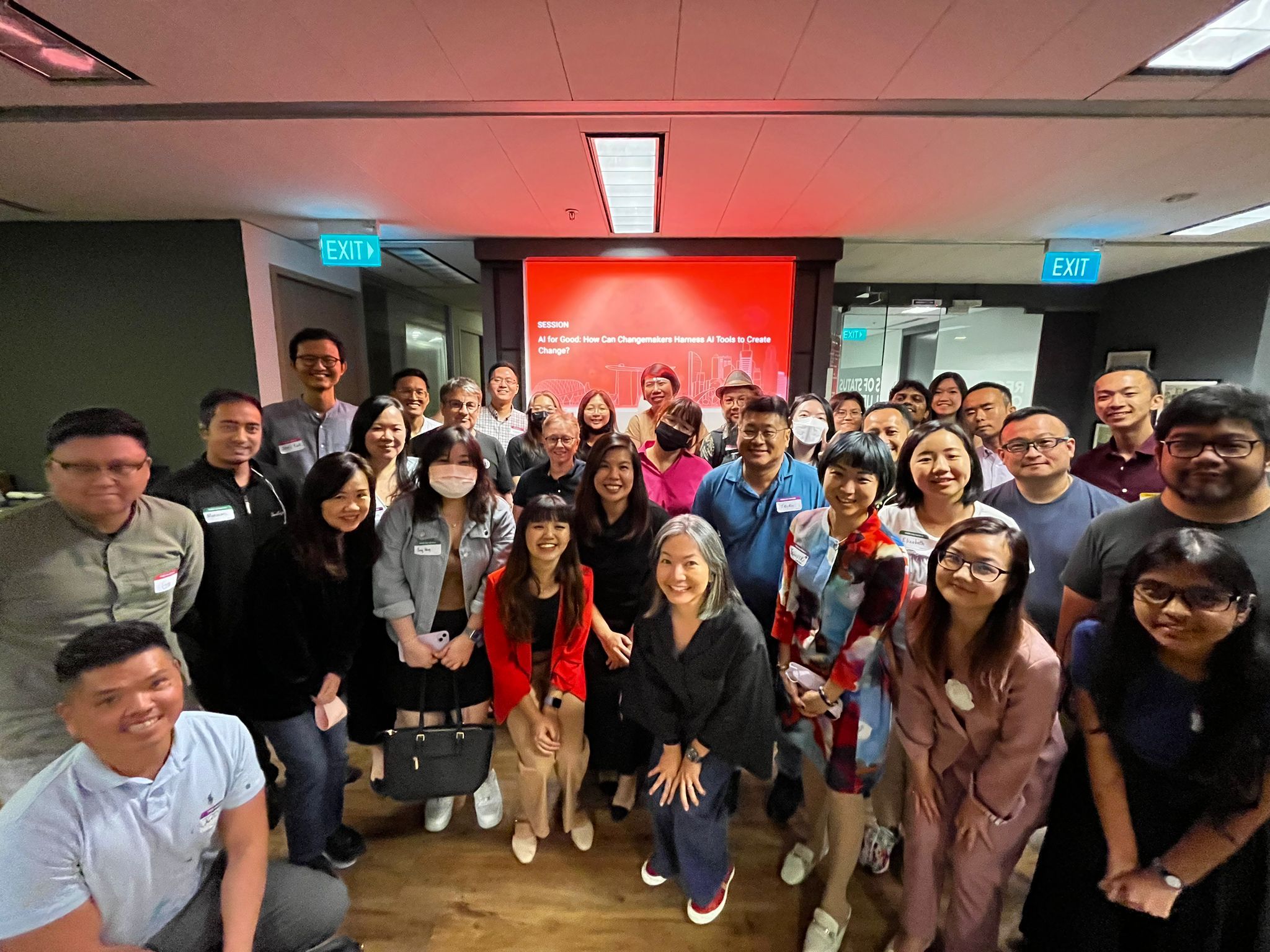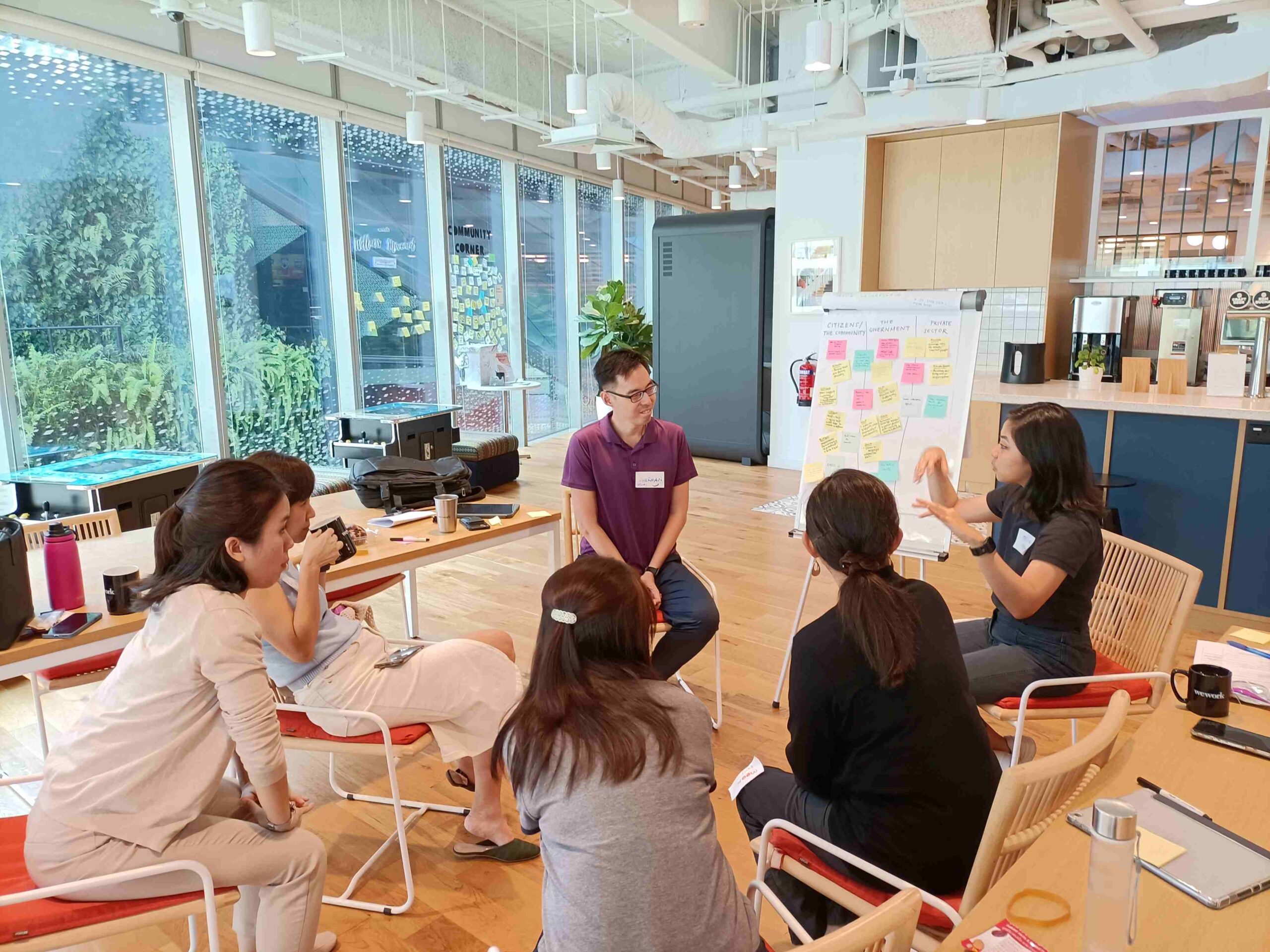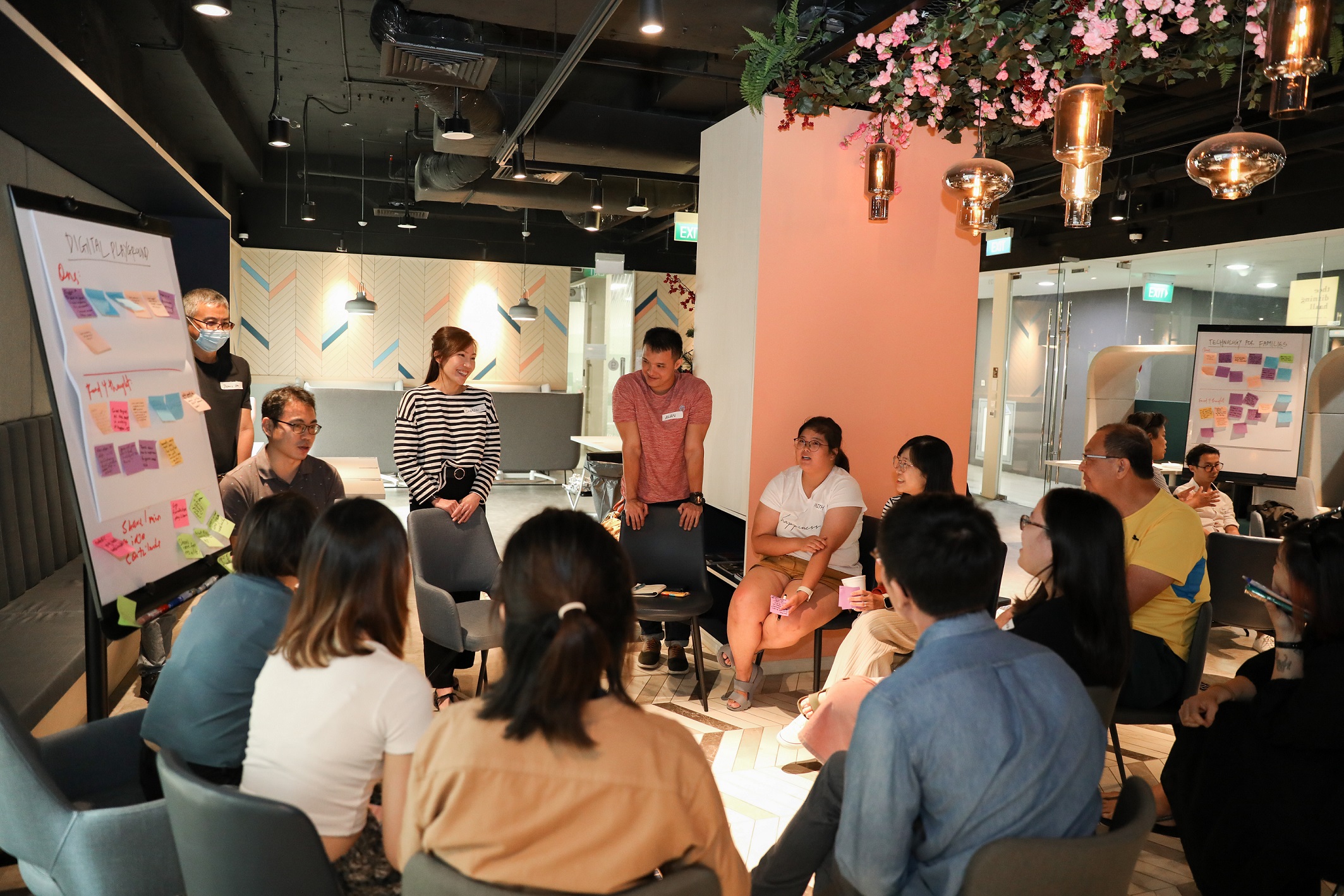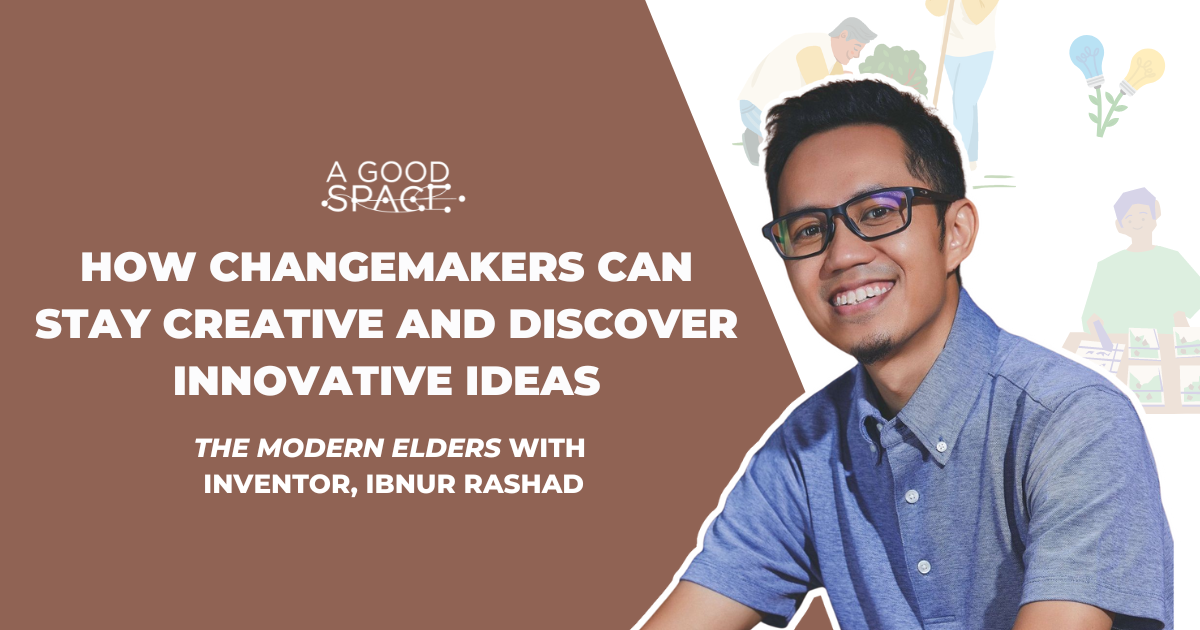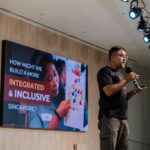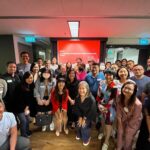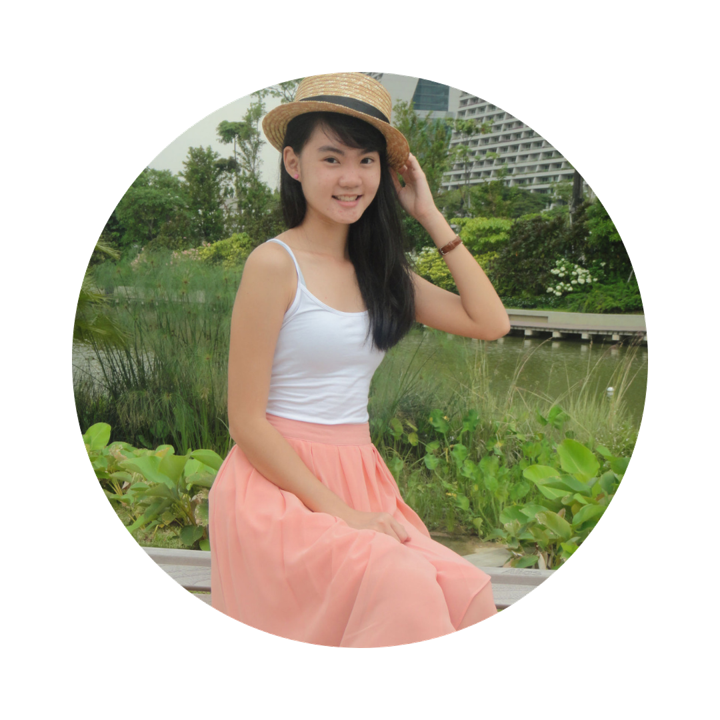When it comes to conversations surrounding mental health, which communities and topics are often left out of dominant narratives?
What rarely discussed challenges do these communities face? What can you do to make Singapore a more inclusive and kind place for these communities to exist?
On 31 October 2020, we had our first session of Lived Intersections – Lived Intersections @ A Good Space #1: Exploring Mental Health at the Margins. Over 85 people had signed up for the event. Lived Intersections #1 featured these 5 communities:
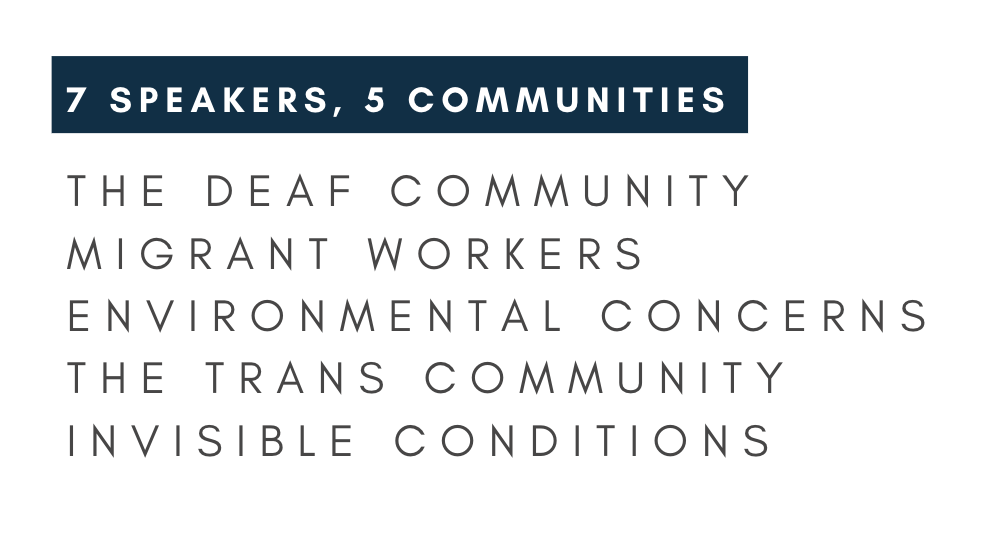
We chose these 5 communities because we felt like all of them were often sidelined in mainstream discourses on mental health. We also chose some of them based on changemakers who were already members of A Good Space, such as Sherry from Autoimmune Diseases Singapore (Invisible Conditions community) and Lily from ExtraOrdinary Horizons Singapore (Deaf Community).
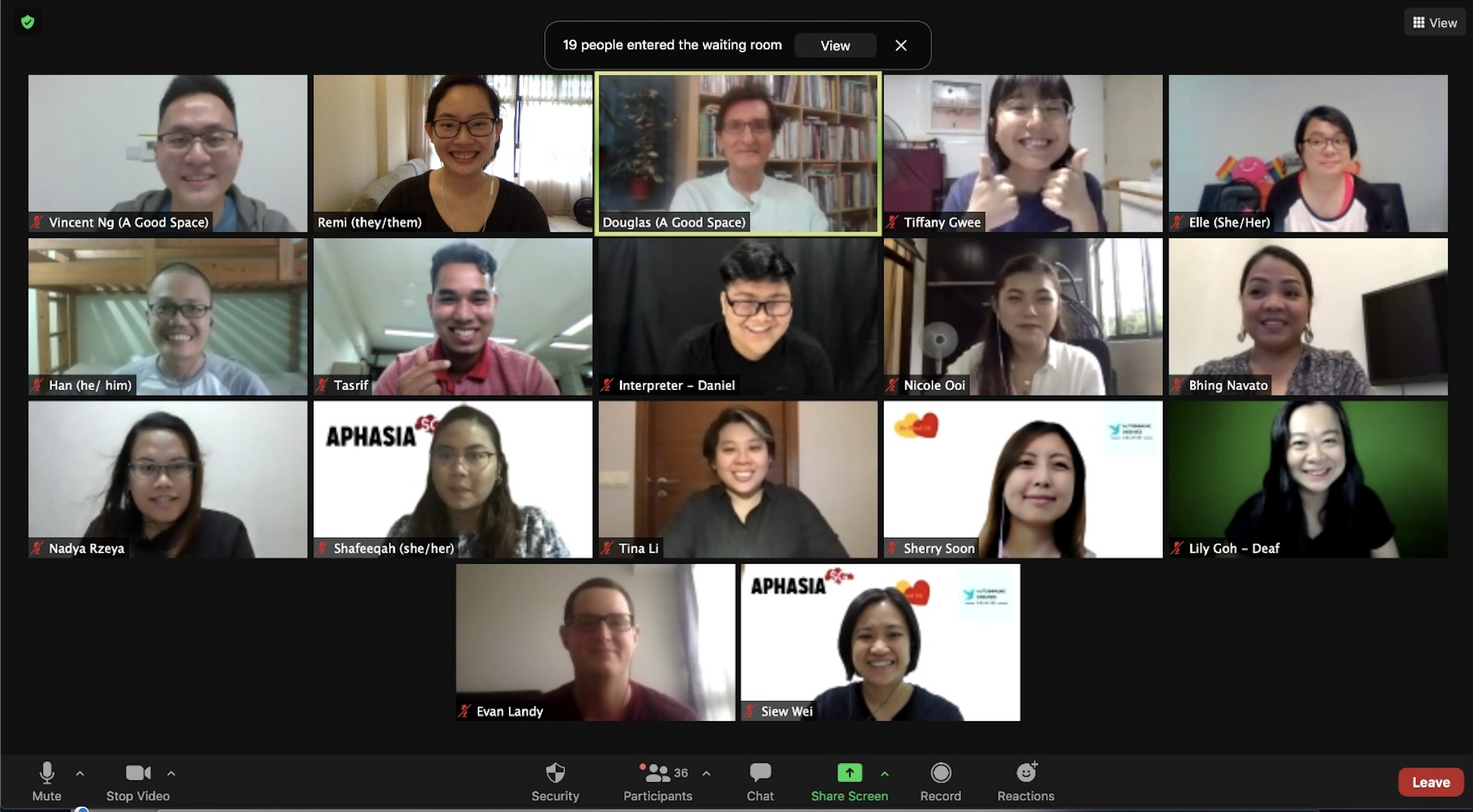
In this write-up, you will get to know a bit more about the panel, as well as key insights gathered from each room. Resources will be provided at the end of the post for your reference!
Key Insights from each community's Breakout Room
Lived Intersections #1 was no ordinary panel. Instead of just having all the speakers answer questions in a panel, we wanted to provide the different communities their own space to hold the conversation how they wanted to. All breakout rooms were specially curated and created by the speakers and facilitators from the 5 communities.
Here are some key insights from the different rooms:
The Deaf Community
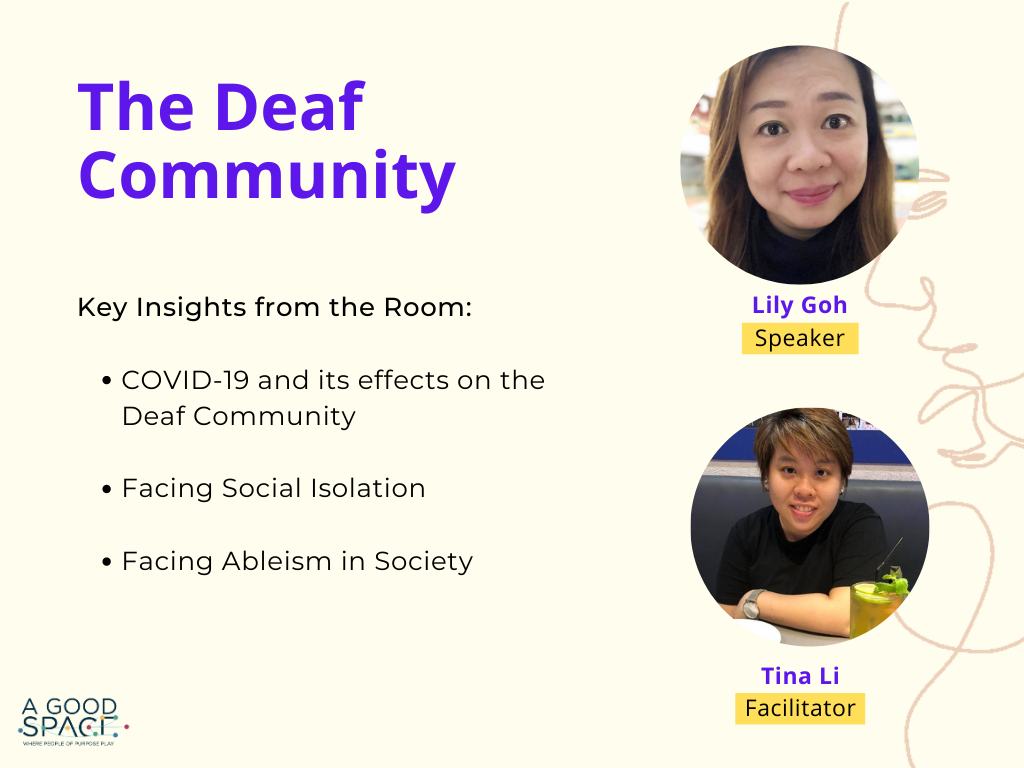
1. COVID-19 and its effects on the Deaf
During her introduction, Lily introduced her very adorable cockatiel sitting on her shoulder, who she had named Lemon. She expressed she bought Lemon for company 3 to 4 months ago because she was feeling depressed due to how the COVID-19 pandemic had negatively impacted on her life. In the room, she discussed how many Deaf folks have also been negatively affected because of the pandemic.
Many have been struggling with communication since everyone has been wearing masks, which makes it difficult to lip read. Additionally, not many people are willing to type on the phones. Some deaf folks have given up communicating a lot of the times.
2. Facing Social Isolation
Social isolation was already an issue that the Deaf community struggles with even before the COVID-19 pandemic.
However, the pandemic had worsened this. Since there are communication issues between deaf folks themselves and with hearing people, many have been forced to stay home. This has severely and negatively impacted some in the Deaf community. Many of them face depression.
3. Facing Ableism in Society
People often look at hearing loss as a weakness, which is something Lily is extremely tired of. She also brought up how she felt like she was being asked the same questions over, and over again. This becomes extremely exhausting – especially when many of these questions pertain to her hearing problems.
A lot of experiences are structured for hearing folks – leaving out the Deaf community in many ways.
Allyship and Support
It is important for hearing folks to be able to keep an open mind, be willing to communicate with deaf folks (through writing/text, learning Sign Language etc.). Hearing folks have to put themselves in the shoes of someone who is deaf.
Hearing folks should also seek to understand what deaf folks need. Different deaf folks require different kinds of help, so do mindful and sensitive when supporting.
The Migrant Workers Community
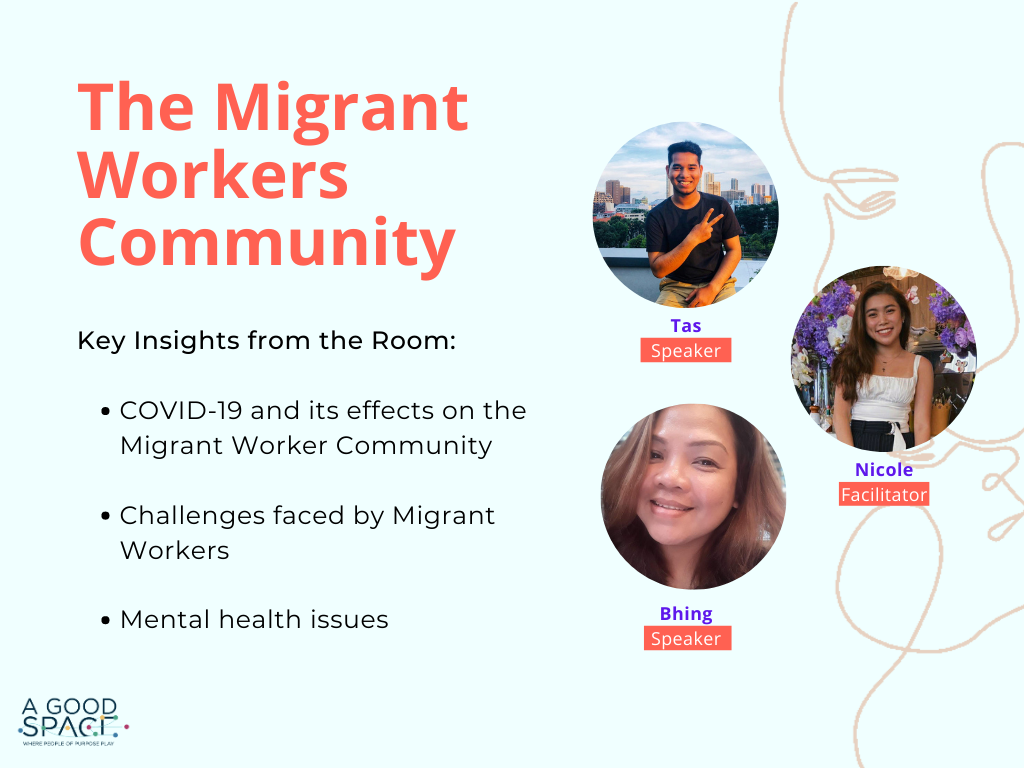
1. COVID-19 and its effects on the Migrant Workers Community
Both Bhing and Tas shared their stress and anxiety about their families back home in Philippines (for Bhing) and Bangladesh (for Tas).
With the COVID-19 crisis hitting the Migrant Workers the hardest, many had to be isolated in dormitories around Singapore. With the lockdowns, many migrant workers have been having troubles with food and salaries. Many feel like “prisoners”, as Tas had described.
Bhing spoke about how during this COVID-19 pandemic, a lot of attention have been on Foreign Workers (FWs). Many might then sideline issues brought up by DWs during this period, such as isolation, being locked up and intensive surveillance from employers.
Many DWs have been stressed and depressed because of this situation.
2. Challenges faced by migrant workers
Bhing and Tas both spoke about how many of these issues are not just COVID-19 specific – they have been around even before the pandemic hit.
For instance, Bhing expressed concern for many of the DWs who are under intense surveillance from their employers, and DWs who are being bullied, abused and threatened by their employers. During the event, she shared a poem she had written, “Cry of the Hidden“, describing some of the abuse some DWs have to go through everyday.
3. Mental Health issues
Other than the COVID-19 lockdown that has increasingly brought about a lot of anxiety, stress and social isolation in the MW community, both brought up the issue of the dehumanisation, bullying and abuse of many migrant workers.
With most MWs being away from their family and not having access to good support networks and systems, this further adds to the worsening of mental health within the community.
Allyship and Support
Tas talks about the importance of being amicable to migrant workers. While he is moved by many community movements, of course more has to be done to provide support the Migrant Workers community needs.
Younger people should take the initiative to educate older family members on the treatment of MWs and DWs. Bhing asserts, “Treat others as you like to be treated, treat them as human beings.”
Eco-Anxiety/Environmental Concerns
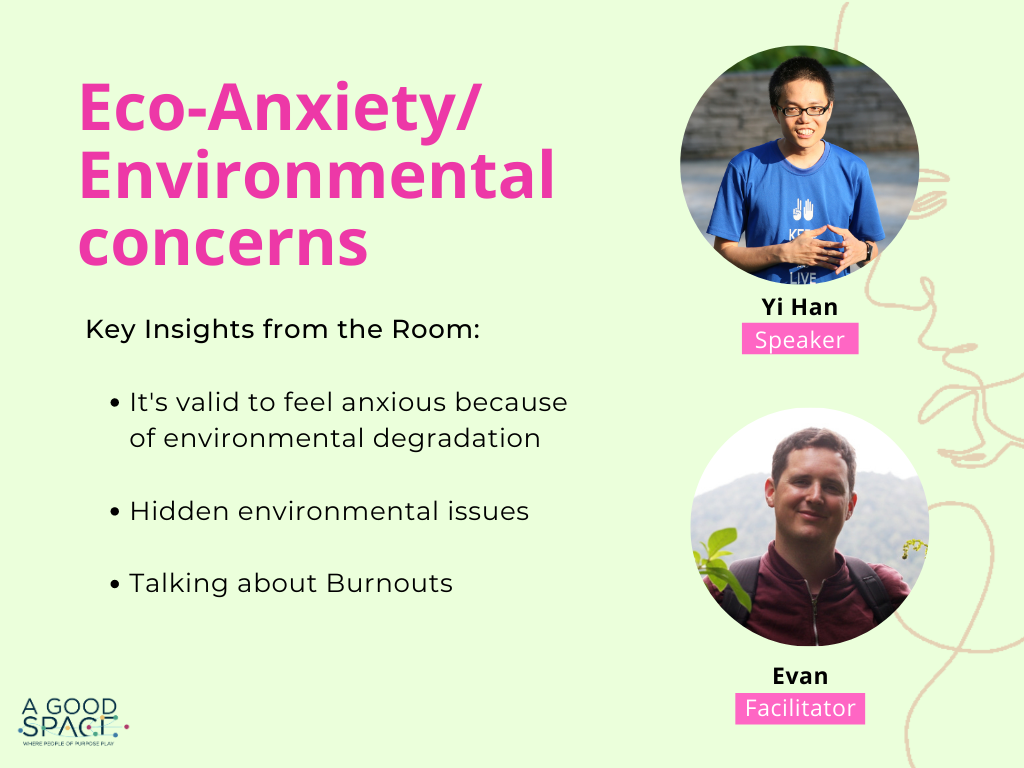
1. Anxiety is valid
The room discussing eco-anxiety and environmental concerns was a little different from the rest. The room was interactive, and participants were encouraged to share their feelings about environmental degradation and loss.
Many participants spoke very honestly about feeling sad, overwhelmed, anxious, numb, sad and depressed. Evan and Yi Han emphasised how these feelings are actually natural. A lot of times we might not realise that environmental concerns are deeply intertwined with mental health issues, and that it is okay and valid to feel such emotions when aware about what is going on in the world.
2. Hidden Environmental Issues
Evan mentioned how because Singapore is often known as the “Clean and Green city”, this can hide a lot of environmental problems that we cause.
Someone in the room had shared about how they visited a landfill site in another country and perhaps this adds to increased awareness of environmental concerns.
In Singapore, such a landfill site might not be visible, which might make it hard to connect environmental degradation and loss to what we see (or cannot see).
3. Talking about Burnouts
The room had also talked about burnouts – how many people try to do their bit but getting worn down by issues they see.
Evan suggested also looking at the joy you can get by looking at nature, like waking up to enjoy the sunrise. Nature has to also be a source of joy.
The Transgender Community
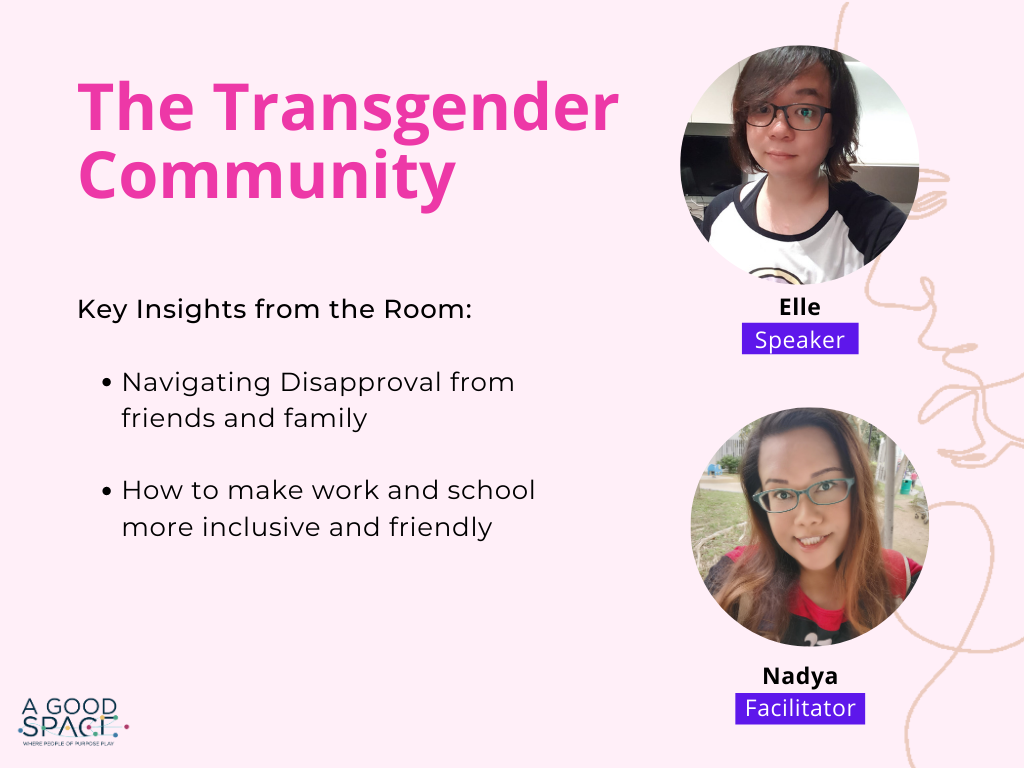
1. Navigating Disapproval
A topic that was brought up during the breakout room session was how to navigate disapproval from friends and family if you are LGBTQ+ (Lesbian, Gay, Bisexual, Transgender and Queer).
Both Elle and Nadya spoke about how coming out is not necessarily a good thing, especially if the situation is unsafe. Nadya brought up a point about LGBTQ+ representation in media, and how perhaps exposing older folks to this might help to open up conversation.
2. Inclusive schools and workplaces
Nadya spoke about her own experiences at work in her workplace, where they have clear anti-discrimination policies set in place to ensure a safer, more inclusive workplace for trans folks.
Elle stressed the importance of legal protection for LGBTQ+ folks. This is especially important for trans people, where even policies like a company or school dress code are often very discriminatory.
Allyship and Support
Both talked about not passing judgments and being kind to whoever you meet, no matter how they present. More importantly, one should not assume someone’s pronouns. How someone might look does not necessarily say anything about what gender they are.
Elle brought up how one should use “pronouns” instead of “preferred pronouns”. She also added that asking for someone’s pronouns can be like how you would ask for someone’s name. Remember to do so sensitively and discreetly, if needed.
Invisible Disabilities/Conditions
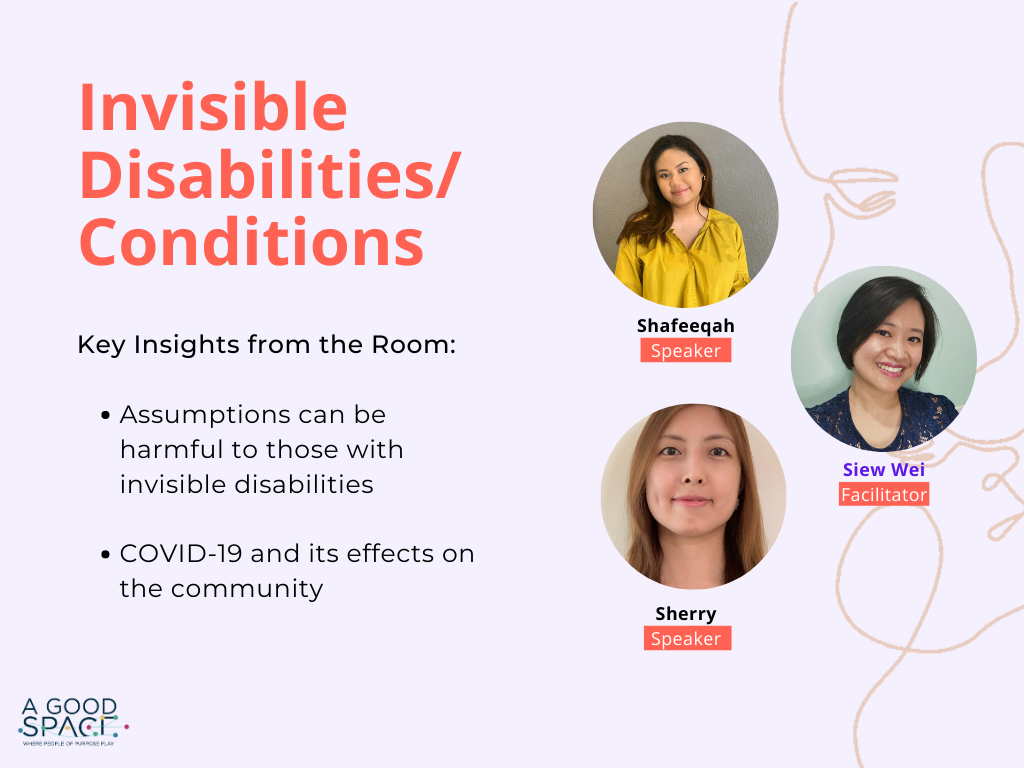
1. Assumptions can be harmful
Folks with invisible disabilities often get invalidated because of the fact that these disabilities are hidden and not visible to the eye. In the Invisible disabilities breakout room, Shafeeqah and Sherry both shared their lived experiences with Aphasia (for Shafeeqah) and vasculitis (for Sherry).
Both had similar experiences of being pre-judged based on their appearances, and this negatively affects one’s mental health.
Shafeeqah shared a story about how she had to rehearse her food order in her head before heading up to the counter, but just as she went up to the front of the queue, the food stall had changed all of the ingredients. This caused her to panic, while those behind shot her a look of annoyance, which added to her stress.
Sherry also spoke about how some had commented on her slow walking speeds, not knowing she had ulcers on her feet. She also brought up the stress she faces when she has to sit on the reserved seat on public transport while receiving judgment from those who do not know of her condition.
Siew Wei emphasised the importance of not making assumptions about others, as they might have some struggles that are not visible.
2. COVID-19 and its effects on the community
Sherry shared more about the heightened sense of paranoia of those who have autoimmune diseases. This is because folks with autoimmune diseases are at a higher risk of having a more serious complication if they do contract the COVID-19 virus.
Shafeeqah and Siew Wei both shared about how COVID-19 has affected those with Aphasia who used to have regular meetups (called the ‘ChitChat Café’) prior to the pandemic to help them practice with speech and communication.
With these sessions being held over Zoom, this has posed issues for some who are not as tech savvy. Social isolation is a real concern for folks with Autoimmune diseases and Aphasia.
Allyship and Support
Shafeeqah, Siew Wei and Sherry all mentioned the importance of being patient, kind and not making assumptions about someone’s condition and disability. Shafeeqah also emphasised the significance of listening and understanding the needs of the individual.
The Pledge Wall
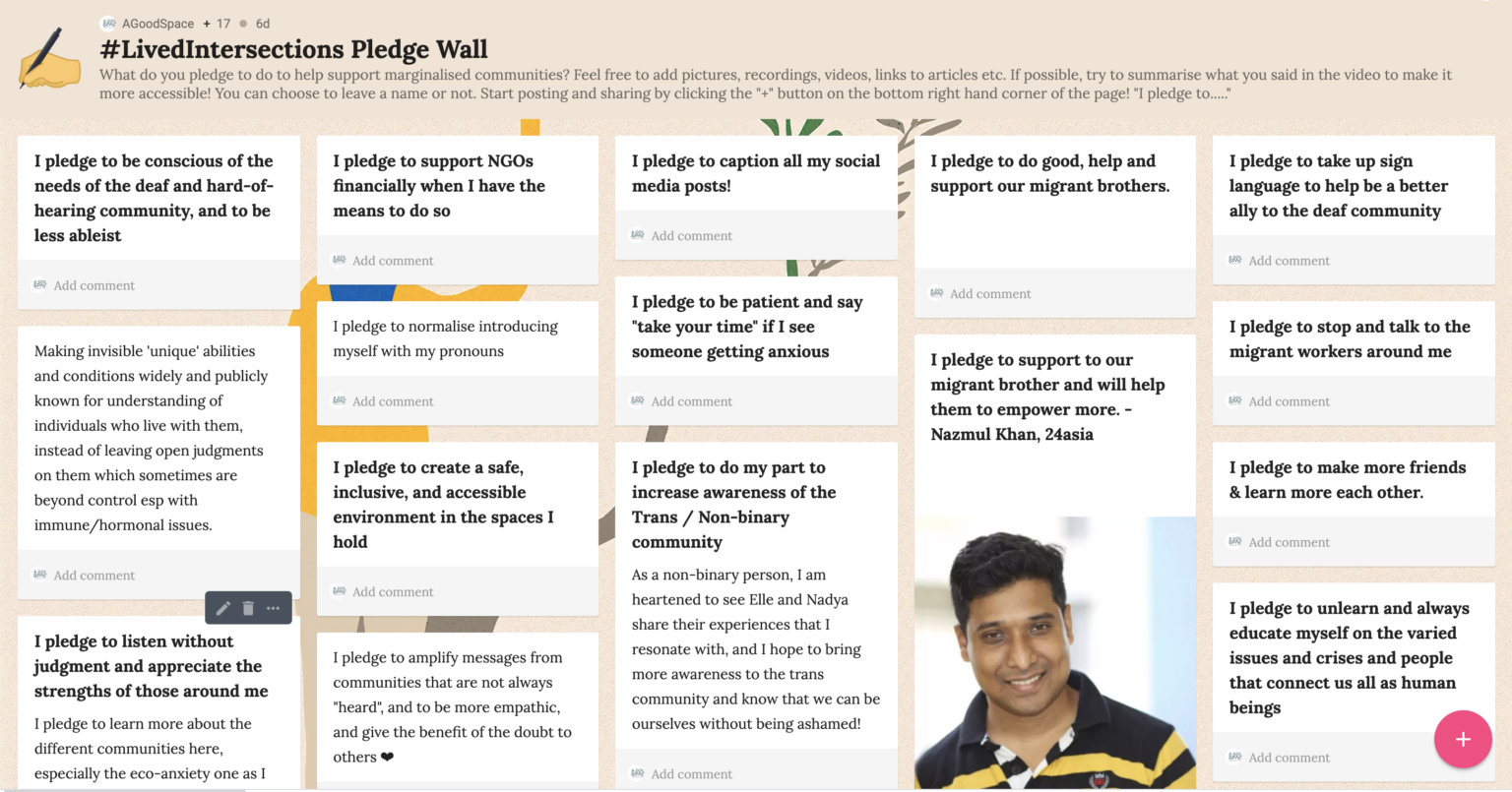
Following the discussions on allyship and forms of support for these communities, we thought it would be lovely if participants had a space to share what they had learnt during the session.
Participants were encouraged to make use of our Pledging Board share with others what they commit to doing to help make the world a little more kind and more inclusive.
We stressed that these did not have to be big acts and changes, but can be small and within their own capacities. We wanted everyone to feel like they could be involved in allyship practices. Participants were also encouraged to read some of these other pledges to get more ideas as to what else they can potentially do to support other communities.
Here were some examples of pledges made by participants of Lived Intersections #1:
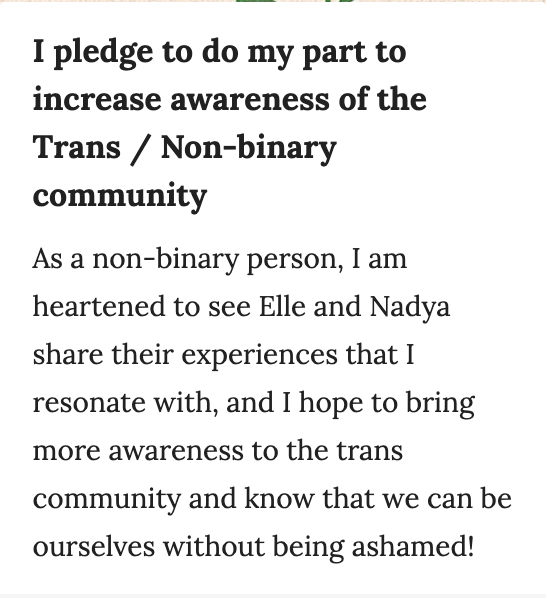
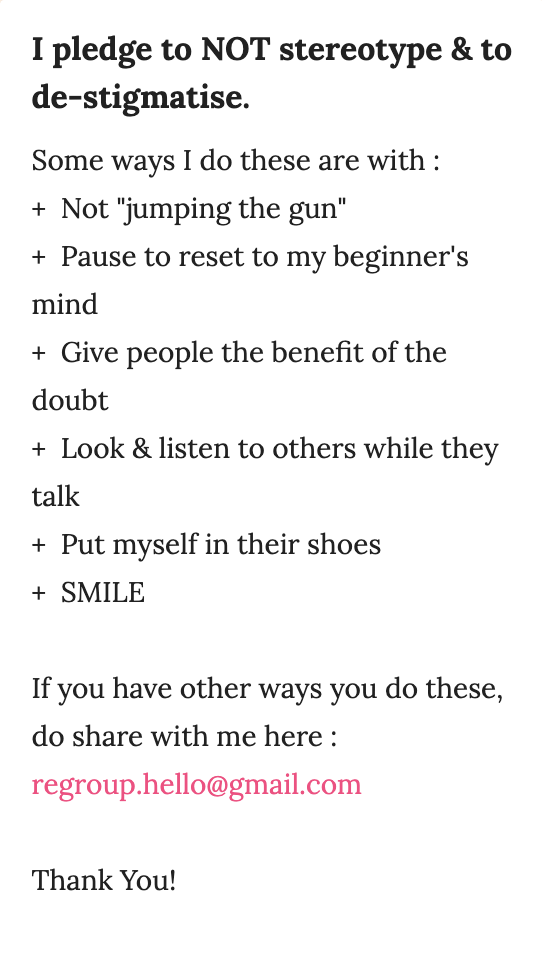
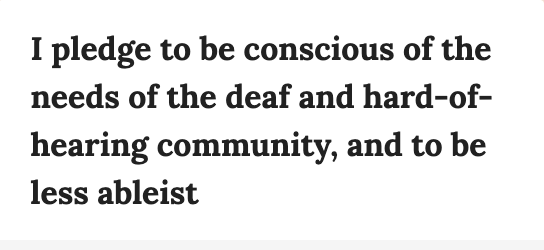
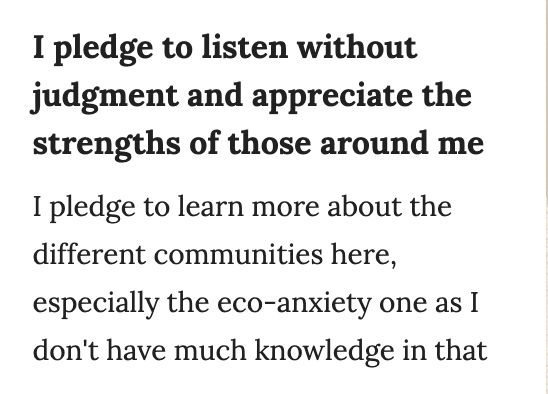
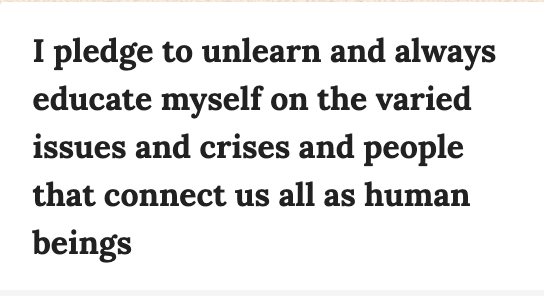
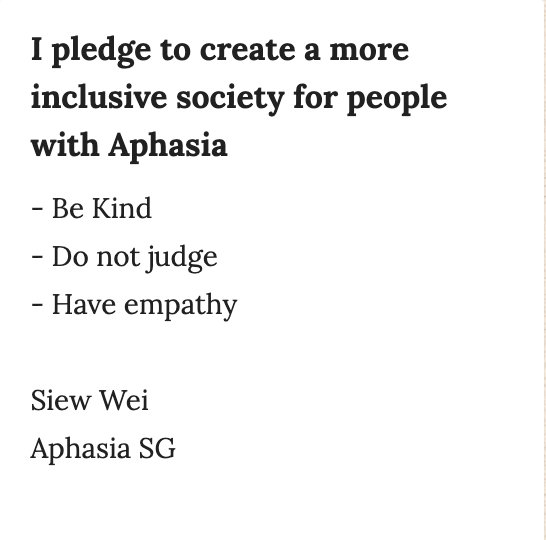
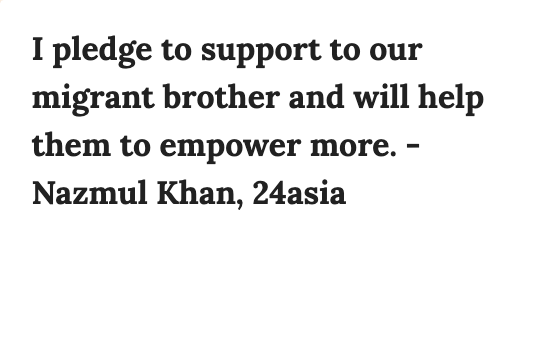

Feel free to read all of them and/or add your own here: bit.ly/AGSmhpledge
Where will we go from here?
If you had missed the first Lived Intersections, do not fret! There will be more of such events and activities to come at A Good Space.
Follow us on our social media pages to keep updated and find out more.
Resources
At A Good Space, we emphasise the importance in active citizenry and in uplifting others in the community. Here are some of the communities and organisations our Speakers had mentioned during the panel.
Please do feel free to head over to these groups to see how you can contribute or participate in the various organisations!
The Deaf Community

ExtraOrdinary Horizons
Lily, our speaker, manages this social enterprise and teaches Singapore Sign Language here!

The Singapore Association for the Deaf
SADeaf serves many deaf and hard-of-hearing persons and provides a gamut of services such as sign language interpretation, workshops, counselling services etc.
The Migrant Workers Community
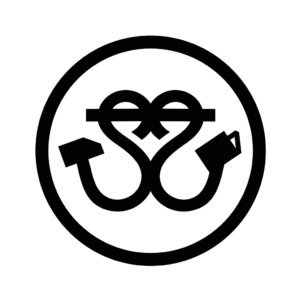
Sama Sama
Sama Sama is a campaign seeking to redefine the narrative of migrant workers in Singapore, seeing them as #morethan. Tas, our speaker, is involved in this!

HOME
Humanitarian Organization for Migration Economics is a Singaporean non-governmental organization that provides services to, and advocates on behalf of, migrant workers. Bhing, our speaker, volunteers here!
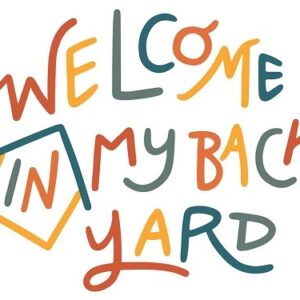
Welcome In My Backyard
WIMBY is a is a volunteer-run campaign that raises awareness in relation to migrant workers in Singapore. Our facilitator, Nicole, is involved in this!

Migrant Writers of Singapore
Our speaker, Bhing, is involved in this!
Eco-Anxiety/Environmental Concerns

The Mother Earth Toastmasters Club
The Mother Earth Toastmasters Club is a social change organisation wanting to promote environmental awareness through mediums such as public speaking. Our speaker, Yi Han, is involved in this!
The Transgender Community
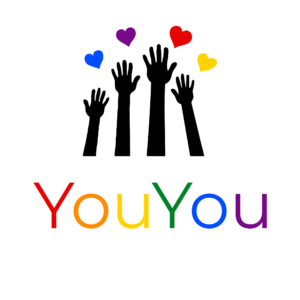
YouYou
YouYou is an interfaith and LGBTQ+ affirmative group in Singapore. Our speaker, Elle, is involved in this!
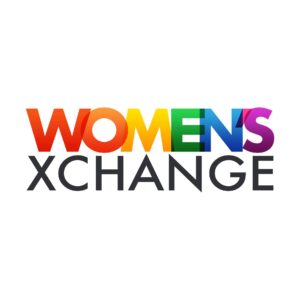
Women's Xchange
Women's Xchange is a LBTQ women-centric group that focuses on connecting like-minded women. Nadya, our facilitator, is involved in this!
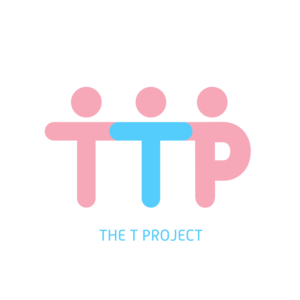
The T Project
The T Project is Singapore’s first and only social service for the transgender community.
Invisible Disabilities/Conditions

Autoimmune Diseases Singapore
Autoimmune Diseases Singapore is a support group is for people residing in Singapore and living with autoimmune diseases. Our speaker, Sherry, runs this!

Aphasia SG
Aphasia SG is a not-for-profit organisation supporting persons with aphasia in Singapore and their caregivers. Our speaker and facilitator, Shafeeqah and Siew Wei, are both involved in this!
They are currently looking for volunteer befrienders. Go to their social media pages to find out more.
Once again, we thank all speakers, facilitators and participants for spending their precious Saturday afternoons with us! We hope it was as meaningful for all participants who came along as it was for the rest of us.
A very special thank you to Daniel, our amazing sign interpreter, Douglas, our main moderator for this panel, and our lovely notetakers for each of the rooms.
Feel free to share what you had read:
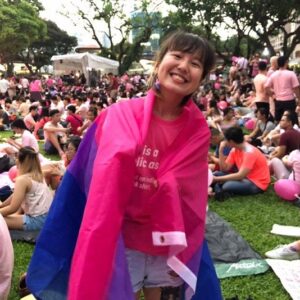
Tiffany Gwee
Tiffany was a marketing intern for a bit at A Good Space. She loves cats and her dog Kaiser.
